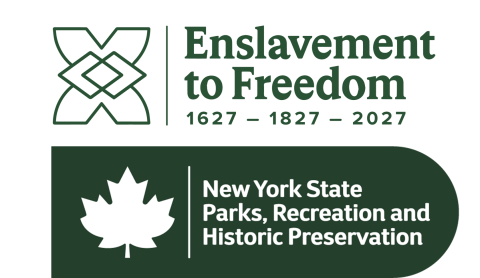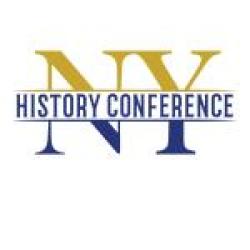The New York State Museum, State Library, State Archives, and the New York State Archives Partnership Trust, in collaboration with the Hudson River Valley Institute at Marist University and the Cooperstown Graduate Program at SUNY Oneonta, are excited to announce the second annual New York History Conference. The goal of the conference is to provide an inclusive and engaging forum in which historians, educators, museum professionals, archivists, and librarians can share research and resources on the practice, research, preservation, and teaching of New York State history.
When: June 11-12, 2026
Where: Marist University, 3399 North Road, Poughkeepsie, NY 12601
Click here for the Call for Proposals
Registration and Hotel Information:
Hotel Information: TBA
Registration: TBA
Contact: TBA
Conference Scholarships: TBA
Special Session: Historic African American Burial Grounds and Cemeteries

African American historic burial grounds and cemeteries are some of the state’s most fragile sacred places. They document the history of slavery and the African diaspora, civil rights struggles, and spiritual practice while honoring the voices and lives of ancestors. The threats to these cultural sites are many. They have suffered from abandonment, neglect, a misunderstanding of existing burial statutes and legal boundaries, direct or encroaching development, missing and damaged markers, missing and deteriorated burial records, and overall lack of public awareness of their significance to their communities. Some have been lost to time and merit efforts towards their rediscovery and preservation. There have been several instances of unmarked burials that have been inadvertently discovered and threatened or destroyed by development projects, which would potentially benefit from respectful reinterment.
Session 1: Stepping into a Burial Ground Project: Three possible scenarios
This session will explore three common paths into burial ground projects and the different types of support required
Unintentional Ground Disturbance
Undisturbed Ground - Unmarked and/or Unsupported Known or Suspected Location
Lost Burial Ground – Removed and Redeveloped
Session 2: Building a Legacy Plan
Memorialization Options
Envisioning and funding long term care
Ways to keep location in living memory
Sessions will include information on the role of archaeology in historic burial grounds; specific case studies; technical preservation strategies; reinterment issues; legal issues related to unknown or inaccurate cemetery boundaries and grave locations, and unknown or contested ownership; how to research and document Black cemeteries; funding strategies; sharing of best practices; digital applications in the recording and restoration of cemeteries; issues of public interest and engagement; respectful and appropriate interpretation and memorialization; and more.
Panelists will include staff of NYS OPRHP Division of Historic Preservation, archeologists, historians, and colleagues working on active historic African American burial ground and cemetery projects in New York state.
These sessions are sponsored by NYS OPRHP Enslavement to Freedom 1627-1827-2027 Project
Marketing and Exhibitor Opportunities
TBA
Opening Reception Keynote Speaker
TBA
Lunchtime Keynote Speakers
TBA
2025 NY History Conference Tentative Schedule
TBA
2024 NYHC Resource Page
View videos of recorded sessions from the 2024 New York History Conference. Educators can access additional opportunities to earn .5 CTLE credit hours!




